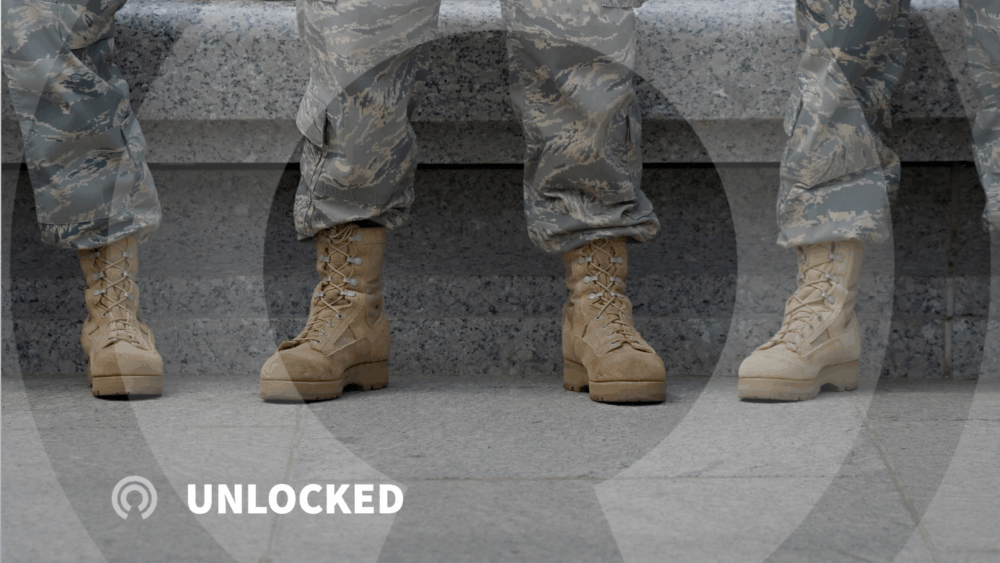
Explainers, Podcasts, Videos
Unlocked: Who controls the National Guard?
Reports & Papers
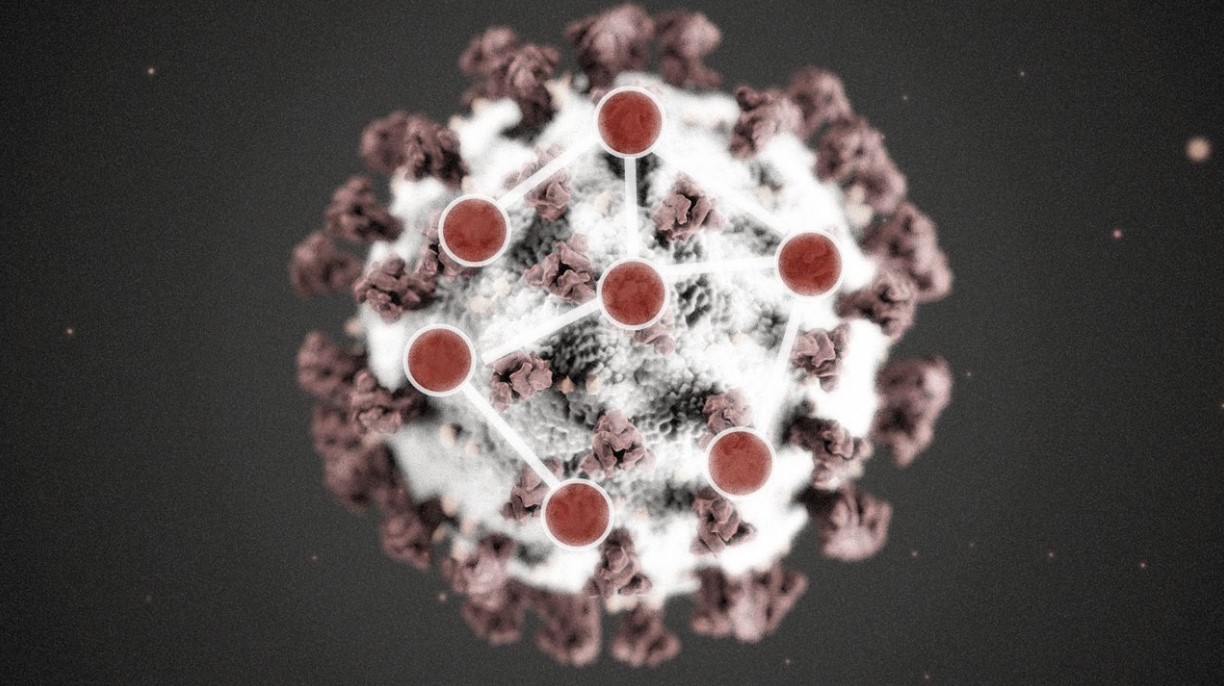
The COVID-19 pandemic continues to ravage the country as we draw closer to a new school year leaving school districts across the United States struggling with the decision of whether to stay remote in the fall, return to classes in full, or embrace a hybrid approach.
The latest survey conducted by the multi-university COVID-19 Consortium for Understanding the Public’s Policy Preferences Across States, led in part by Shorenstein Center faculty Matthew Baum and Kennedy School Institute of Politics Polling Director John Della Volpe found that women, people of color, and lower-income people are more likely to believe that it would be unsafe for children in the United States to return to their community schools in the fall.
You can download a full PDF of the report here.
In the report on the survey findings, the researchers say they found that just 31 percent of respondents overall felt it would be safe or very safe for K-12 students in their community to return to school. Of those, just 10 percent said it would be very safe, while 21 percent chose safe. A total of 64 percent of respondents felt it would not be safe to return to schools.
The results differed based on the gender, race, income, and political affiliation of those surveyed. For example, Hispanics, African Americans, and Asian Americans all felt considerably more pessimistic about school safety than white respondents. And the wealthiest respondents—those with incomes over $200,000—were almost twice as likely to express confidence in school safety than the least wealthy people surveyed—those with incomes under $10,000.
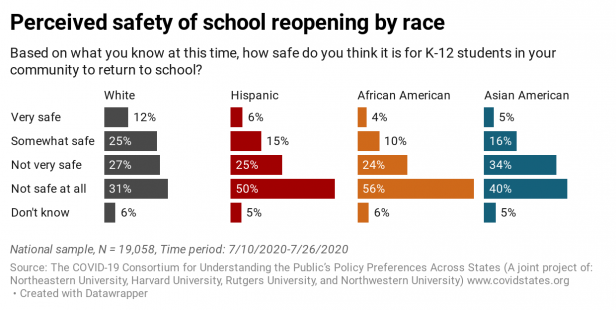
A narrow majority of those who identify as Republicans said they felt it would be safe for students in their communities to return to school compared with just 15 percent of Democrats and 28 percent of independents. The results also varied sharply by state. The five states with the highest level of confidence in reopening schools are solidly Republican, while the five least confident include two Republican-led states and three solidly Democratic (including the District of Columbia).
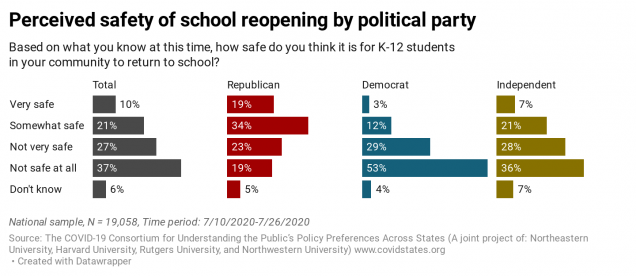

Explainers, Podcasts, Videos
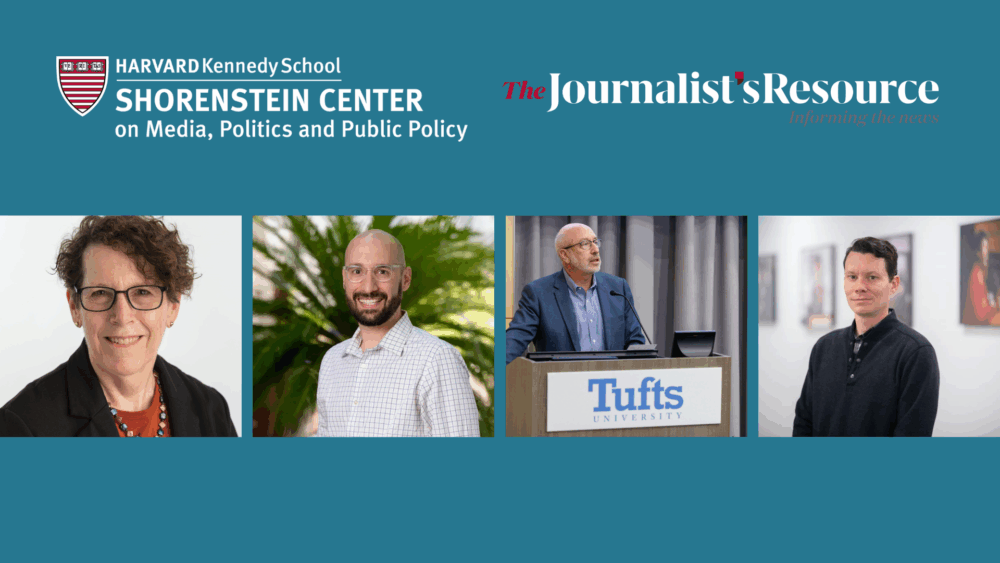
Videos
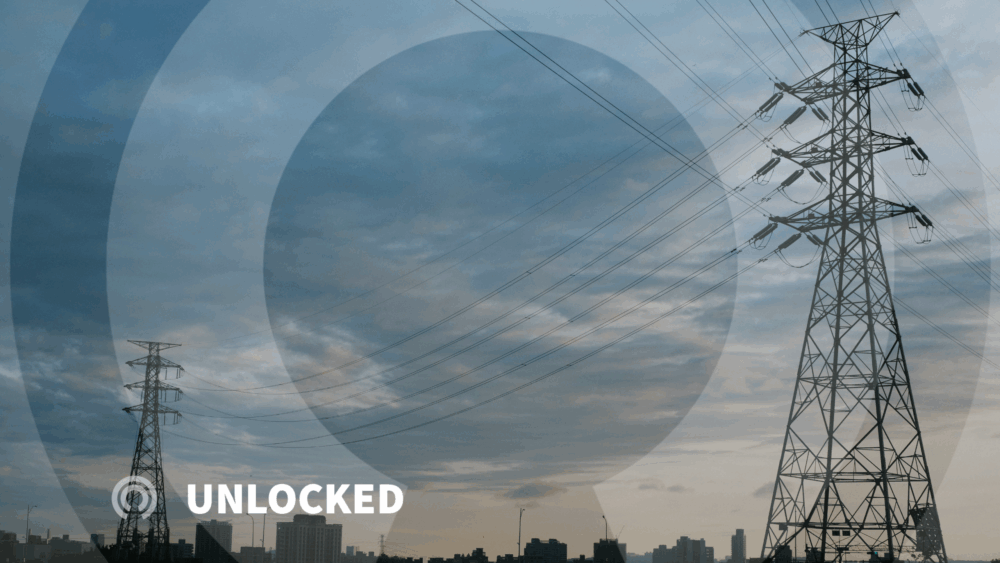
Explainers, Podcasts, Videos